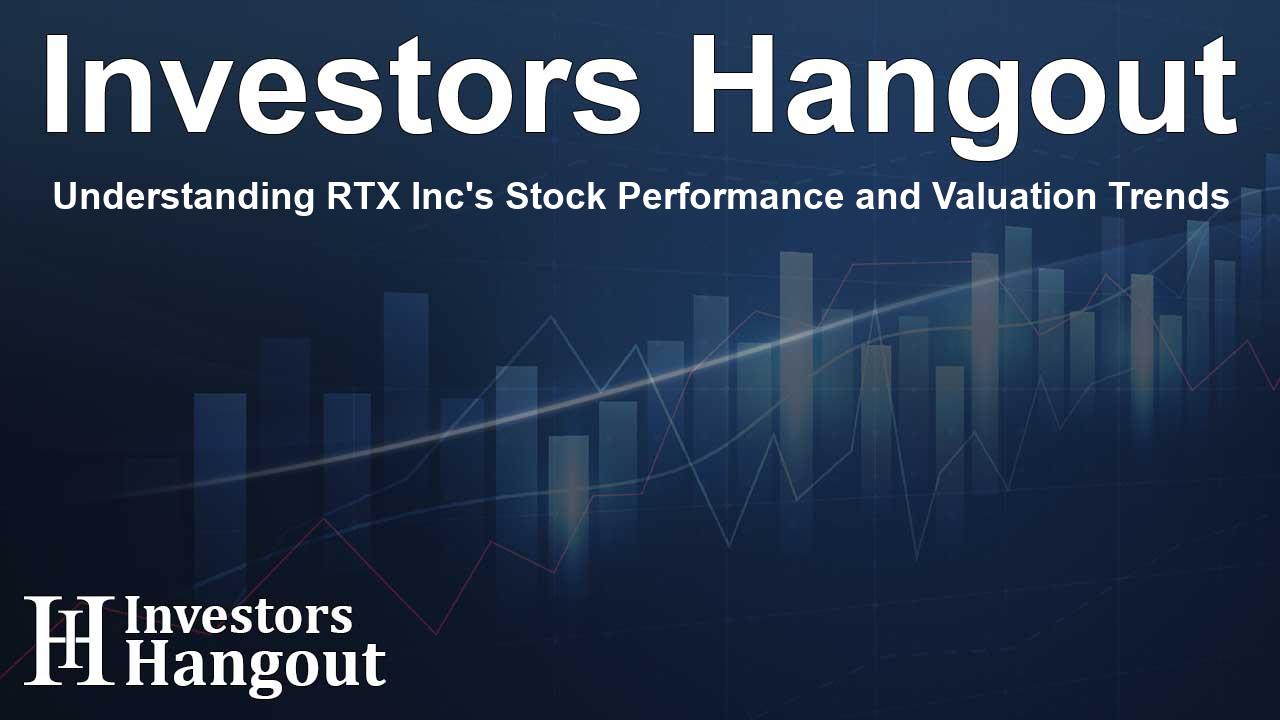Understanding RTX Inc's Stock Performance and Valuation Trends

Unpacking the Performance of RTX Inc Stock
Currently, RTX Inc. stock is trading at $155.94, witnessing a remarkable increase of 4.54%. Over the past month, the stock has rallied by 10.30%, and when viewed over the last year, it has surged by an impressive 37.43%. This commendable performance has generated optimism among long-term shareholders, even as others may feel compelled to investigate the stock's price-to-earnings (P/E) ratio to ascertain its valuation.
P/E Ratio Analysis and Its Importance
The P/E ratio serves as a vital tool for investors, providing insights into how a company's stock is positioned relative to its earnings. Analyzing RTX Inc. helps reveal whether it may be considered overvalued or undervalued compared to industry standards. A lower P/E ratio often suggests potential undervaluation or cautious market expectations about future performance.
How RTX Inc Compares to Industry Peers
In the Aerospace & Defense sector, the average P/E ratio stands at 131.06, significantly higher than RTX Inc.'s current P/E of 32.78. This disparity leads investors to contemplate whether RTX Inc. may be lagging behind its competitors or if it represents an attractive investment opportunity due to its perceived undervaluation.
Understanding the Implications of the P/E Ratio
While the P/E ratio is an insightful metric in evaluating a company's market performance, reliance solely on this figure could mislead investors. A low P/E ratio may hint at undervaluation but can also indicate challenges related to growth potential or financial stability. Consequently, it's essential for investors to consider a broader range of financial metrics, alongside qualitative assessments of the company’s performance.
Adopting a Holistic Approach to Investment Decisions
In closing, it’s crucial to approach the analysis of RTX Inc.'s financial health comprehensively. Relying only on the P/E ratio might oversimplify the complexity of investment decisions. When exploring investment opportunities, including RTX (NYSE: RTX), one should examine various factors like industry trends, other financial ratios, and overall market conditions. Engaging in thorough research and analysis ultimately paves the way for more enlightened investment choices.
Frequently Asked Questions
What is RTX Inc.'s current stock price?
RTX Inc. is currently trading at $155.94.
What has been the stock's performance over the past year?
The stock has increased by 37.43% over the past year.
How does RTX's P/E ratio compare to its industry's average?
RTX has a P/E ratio of 32.78, significantly lower than the industry average of 131.06.
Why is the P/E ratio important for investors?
The P/E ratio is crucial as it helps gauge a company's valuation in relation to its earnings, aiding investors in making more informed decisions.
What should investors consider alongside the P/E ratio?
Investors should look at a combination of financial ratios, industry trends, and qualitative aspects to assess a company's overall financial health.
About The Author
Contact Henry Turner privately here. Or send an email with ATTN: Henry Turner as the subject to contact@investorshangout.com.
About Investors Hangout
Investors Hangout is a leading online stock forum for financial discussion and learning, offering a wide range of free tools and resources. It draws in traders of all levels, who exchange market knowledge, investigate trading tactics, and keep an eye on industry developments in real time. Featuring financial articles, stock message boards, quotes, charts, company profiles, and live news updates. Through cooperative learning and a wealth of informational resources, it helps users from novices creating their first portfolios to experts honing their techniques. Join Investors Hangout today: https://investorshangout.com/
The content of this article is based on factual, publicly available information and does not represent legal, financial, or investment advice. Investors Hangout does not offer financial advice, and the author is not a licensed financial advisor. Consult a qualified advisor before making any financial or investment decisions based on this article. This article should not be considered advice to purchase, sell, or hold any securities or other investments. If any of the material provided here is inaccurate, please contact us for corrections.
